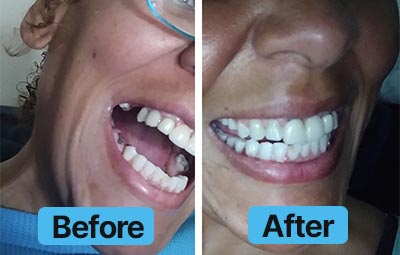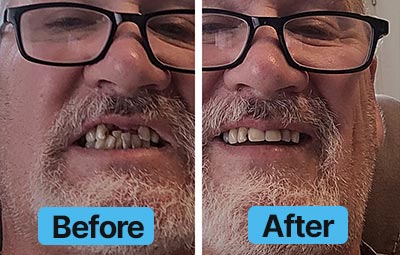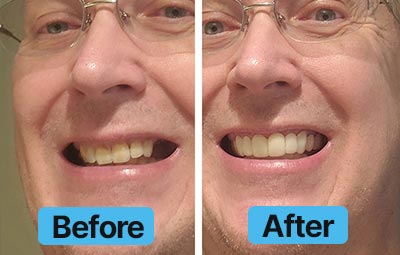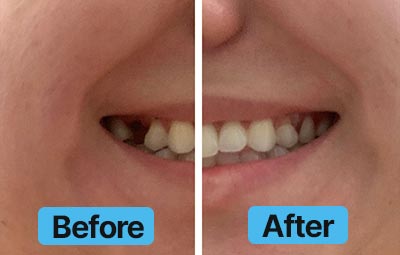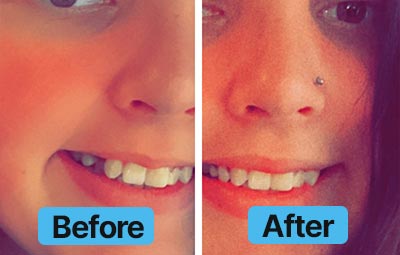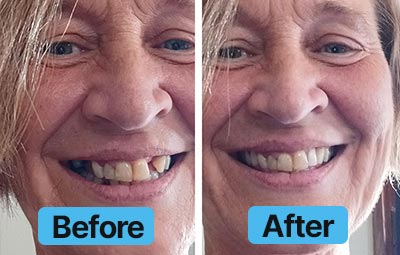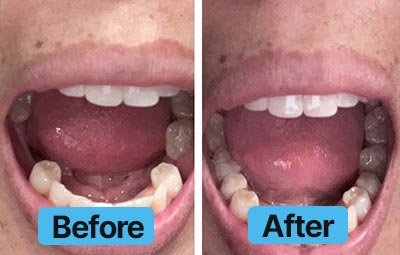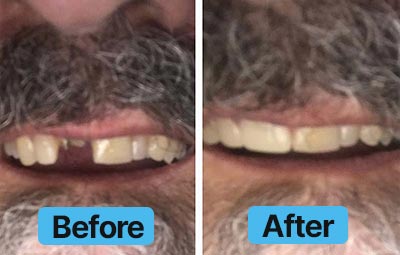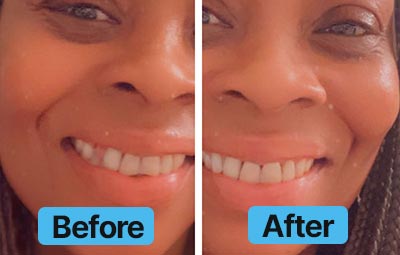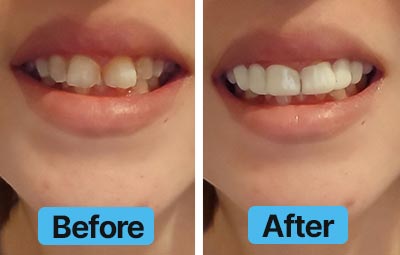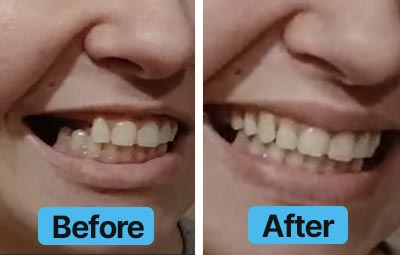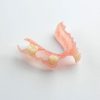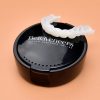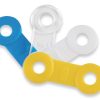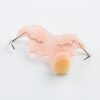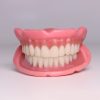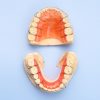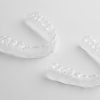If you’re waking up in the morning with a sore jaw and tight neck, you may be suffering from “bruxism” (tooth grinding) while you sleep. According to the New York Times “typically 10% to 16% of adults regularly suffer from sleep bruxism. But this has been no typical year: Pandemic-related stressors are associated with an uptick in not just tooth grinding and jaw clenching but also cracked teeth and other bruxism-associated dental problems.”
Although bruxism is a common condition, it can be difficult to identify. Since sleeping patients are unaware they are grinding or clenching their teeth, they may continue to engage in this behavior for years without a proper diagnosis. Unfortunately, when left unchecked bruxism can result in serious complications such as tooth damage and even tooth loss.
If you suspect you may be suffering from sleep bruxism, it’s time to prioritize your dental health. One of the most effective ways to treat bruxism is by wearing a night guard while sleeping. These simple appliances fit over teeth to provide a cushion and reduce pressure from chronic clenching.
What are the Symptoms of Bruxism?
Although diurnal bruxism does occur in some individuals, in most cases, bruxism occurs during sleep. Repeated clenching and grinding causes stress on the teeth, neck, and jaw, and leads to a range of dental health challenges down the road.
If you’re dealing with the effects of sleep bruxism, you may be experiencing a variety of complications ranging in severity. Symptoms of bruxism include:
- Soreness in the neck, jaw, and temples.
- Headaches and facial pain.
- Chronic fatigue from poor sleep quality.
- Earaches.
- Chipped or cracked teeth.
- Compromised jaw mobility.
- Worn enamel on teeth.
Remember, all patients experience different combinations of symptoms, but it’s still important to quickly identify and treat bruxism before any lasting damage occurs.
What are the Causes of Bruxism?
While an exact cause of bruxism has not been identified, most specialists agree that bruxism is linked to stress and anxiety, which can manifest as clenching and grinding your teeth. It’s no wonder that anxiety-related health issues are on the rise since the start of the COVID-19 pandemic. In fact, a New York Times article found that dentists are seeing more cracked teeth due to patients’ increased stress and poor sleep quality.
But stress isn’t the only cause of bruxism. According to the American Sleep Association, other causes of bruxism might include: “alcohol use, cigarettes, caffeine, sleep apnea, snoring, an abnormal bite, and crooked teeth.”
How to Treat Bruxism with a Mouth Guard
Although the causes of bruxism may vary, the treatment is fairly straightforward. Wearing a mouth guard minimizes the pressure placed on jaw muscles from clenching and protects teeth from the effects of grinding. Mouthguards come in a variety of styles and range from lightweight to heavy-duty.
In general, there are three categories of mouthguards: custom, boil and bite, and pre-fabricated. Selecting the right mouth guard for your bruxism depends on a variety of factors including durability, price point, and comfort.
Pre-Fabricated Mouth Guards
If you’re looking for a quick, inexpensive solution, then pre-fabricated mouthguards are a great place to start. Wearing a ready-made mouth guard may alleviate bruxism symptoms before investing in a more long-lasting option. Designed with a “one size fits all” mentality, pre-fab mouth guards are available to purchase at most pharmacies. Since pre-fab mouth guards are not molded to fit your mouth, this style is sometimes uncomfortable and may shift around due to poor fit.
Boil and Bite Mouth Guards
Boil and bite mouth guards are an intermediate option between pre-fabricated mouth guards and professionally made custom mouth guards. Boil and bite guards are usually budget-friendly, and can be purchased over the counter. In order to achieve a snug fit, you boil the appliance in hot water and then bite into the softened material, leaving an impression of your teeth. While boil and bite mouth guards fit more accurately than pre-fabricated mouth guards, the soft material makes them susceptible to wear and tear. If you suffer from severe bruxism, boil and bite mouth guards may not be heavy-duty enough to prevent long-term damage. On the other hand, the soft material makes boil and bite mouth guards a more comfortable option.
Custom Made Mouth Guards
As the name suggests, custom mouthguards are specifically designed to fit your teeth. In some cases, a custom mouthguard might require a trip to the dentist, but custom mouthguards are also available to order through online dental appliance manufacturers. Custom mouth guards serve the dual purpose of preventing damage from clenching and grinding and keeping teeth in place after orthodontic treatment.
Custom mouthguards are typically made from a flexible acrylic material and are durable and long lasting when cared for properly. Because custom mouthguards are high-quality and made to last, they are usually a more expensive option. However, with the prevalence of online dental appliance services, you can find custom mouthguards within a reasonable price range.
There’s no doubt that ordering a custom mouthguard is an investment. With the longevity of your appliance in mind, it’s essential to take care of your mouth guard on a day-to-day basis. In most cases, custom mouthguards should be cleaned daily by brushing or using a gentle denture cleaner.
Other Treatments for Bruxism
If you’re still experiencing complications from bruxism even after using a mouth guard, there are several other treatment options to consider. Since bruxism is often linked to stress, treatments like mental health counseling and meditation can help ease intense anxiety. Other treatments like yoga, massage, or physical therapy may help alleviate painful tightness in muscles around the jaw and neck. In severe cases, your doctor may prescribe anxiety medication or a mild muscle relaxant to help release tension in the jaw.
When to See a Dentist
While there are plenty of solutions to treat bruxism you can pursue from the comfort of your home, don’t let your bruxism get out of hand before going to the dentist. If you experience persistent jaw pain or tooth pain, go get a dental check-up! Your dentist will be able to offer additional resources for minimizing your discomfort and will be able to address any cracked or fractured teeth.
Additionally, go see a dentist if your mouth guard is causing new or additional pain. Occasionally an ill-fitting mouth guard can lead to further complications or intensified symptoms.
Treatment is Easy with Dental Lab Direct
At Dental Lab Direct we offer high-quality custom-made dental appliances to treat a variety of dental concerns. From retainers to night guards, to partial dentures, we provide solutions delivered right to your door.
Ordering a night guard is easy as one, two, or three with our simple three-step process. The first step is to request an impression kit in the mail. Once you receive your impression kit, it only takes ten minutes to make impressions of your teeth from the comfort of your home. Then, you mail the impressions back to us and in 2-3 weeks your custom appliance will arrive at your doorstep. Plus, with Dental Lab Direct’s 60-day money-back warranty, you don’t have to settle for an uncomfortable appliance. We’re dedicated to finding the perfect fit!
 60 DAY warranty on all custom-made products | 1,000+ 5 Star ★★★★★ Reviews
60 DAY warranty on all custom-made products | 1,000+ 5 Star ★★★★★ Reviews

